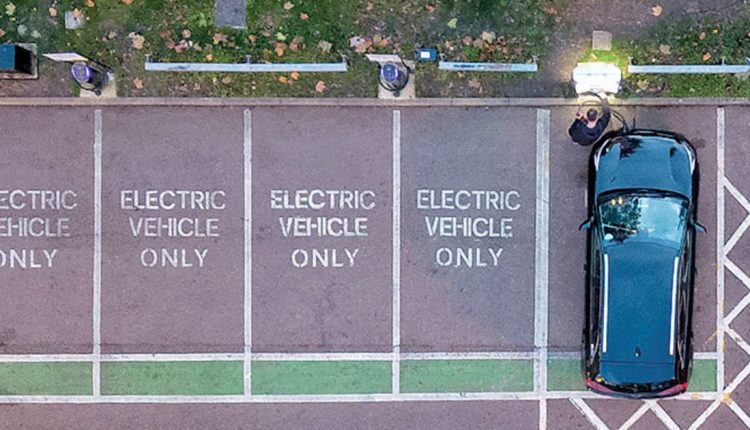The Biden administration has put a fire under the U.S. auto industry’s transition to electric vehicles. It has laid down the challenge of a deadline — at least a wished-for deadline — to convert half the new-vehicle sales in the U.S. It has made hundreds of billions of dollars available to incentivize the purchase and development of EVs and created a carrot-and-stick incentive to move the industry to locally source the technologies, components and critical raw materials needed for the new industry.
This is the way the U.S. often moves forward in history — in large, powerful steps, whether it’s in curbing imports, encouraging consumers to invest and save, creating 19th-century farms in the prairie states, fortifying civil rights, or tooling up for a world war.
The government waves its mighty hand and the land comes alive with new opportunity.
But consultant Matt Weinberg recently made the point to Automotive News that there’s a serious kink in the current EV plan.
The industry is clearly on the job taking care of all the big parts of the EV transition — vehicle assembly, battery manufacturing, sourcing of lithium and lighter-weight metals. But not all the little stuff.
“The problem is the availability of rare earth elements,” said Weinberg, who is launching a consulting firm called REE Supply Consultants. “Every component in your car that requires a motor requires a magnet. And when you get into higher temperature motors, like an EV motor, you have to start using heavier rare earth elements to make the magnet.”
There’s an old saying in the auto industry: You can’t sell a car if it’s missing a single part.
And that’s the alarm bell that Weinberg and others are ringing at the moment.
Rare earth elements, including terbium and dysprosium, are needed in small amounts to make EV magnets or to help batteries charge and do various other things that only a room of engineers would think of. And the existing U.S. source of these elements is inadequate.
U.S. government planners know keenly well that a ready supply of them is crucial. But the overwhelming truth is that the real source for them now is China. And the U.S. and China are not doing a particularly good job of international trade these days.
In July, China imposed export restrictions on two elements, gallium and germanium, which have a wide range of uses, including computer chips and components needed for national security interests. China’s move was seen as retaliation for the U.S. curbing sales of certain technologies to China. The new spat sparked concern that China might also begin limiting exports of the 17 rare earth elements, the production of which occurs in China.
China dominates global rare earth mining — at least 70 percent of it, according to U.S. Geological Survey data. The United States is second. But China is also home to 85 percent of the global capacity for processing rare earth elements into commercially usable forms.
How did this happen?
China invested in mines to gather the elements and the U.S. did not. China invested in international deals to harvest them beyond China’s borders. China invested in the processing facilities to render the elements commercially usable. And China dared to go into the nasty reality of figuring out what to do with the unwanted and harmful byproducts of their processing.
The truth is that American society — not the government, but its citizenry — has taken a dim view of mining over the past few decades. Mining is messy. It’s hard labor. It leaves scars on the landscape. And it creates undesirable consequences downstream in the form of pollution and health hazards. Mines have closed. The prospect of reopening them frightens many investors. And new mines can take years to be approved.
So this is the dilemma.
The U.S. wants to advance transportation to a bold new future. And companies from around the auto industry are pouring oceans of capital into creating the manufacturing base for it.
But not all the little stuff. Not yet, anyway.
This is not a matter of partisan politics. How the United States reconciles its attitude toward mining could determine how successfully the auto industry achieves what it has decided it now wants.


